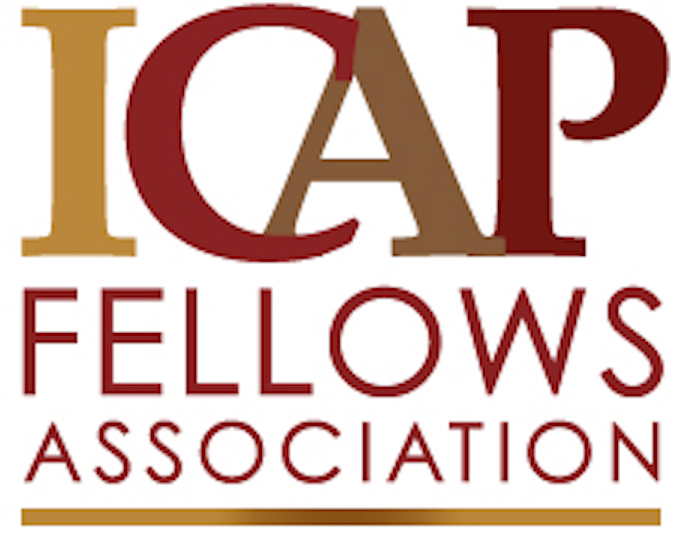This blog post offers a summary of ICAPFA’s July 28, 2022 Webinar panel on the topic of Advancing DEI in Ministries of Foreign Affairs, with additional reflections based on my efforts and research in preparing the panel.
Throughout the 21st century, diversity, equity, and inclusion (DEI) have become increasingly relevant and bankable sources of interest in international affairs and the public sector globally. For the increasing research and funding funneled toward its ideals, where can progress be witnessed? Given the heightened coverage and attention paid to these issues, are the vocalized aspirations put forward by public officials simply “window dressing,” including an attempt to assuage the immediately-involved demographic, or is there a real and tangible pursuit of improving DEI within organizations including foreign affairs agencies?
Looking into the direct hierarchical and social practices of Ministries of Foreign Affairs (MFAs) on behalf of the International Career Advancement Program Fellows Association (ICAPFA), I attempted to examine the successes and challenges of a range of DEI initiatives. Through the initiation of dialogues and engagements, ICAPFA stands to learn from other institutions and MFAs and share findings through foreign service networks and beyond to accelerate effective and full representation in foreign affairs. The examples I explored include the Belgian FPS Foreign Affairs, Brazilian Ministry of Foreign Affairs, New Zealand Ministry of Foreign Affairs & Trade, German Federal Foreign Office, Global Affairs Canada, and the United States Department of State. I invited each to participate in ICAPFA’s July 28, 2022 Webinar panel on the topic of Advancing DEI in Ministries of Foreign Affairs. For those unable to join and share direct experiences, I carried out internet research.
Representatives from four Ministries of Foreign Affairs joined the ICAPFA panel discussion: Ambassador Glivânia Maria de Oliveira, the Director-General of the Rio Branco Institute, Brazil’s diplomatic academy and graduate school of international relations. Most recently, she served as Brazil’s Ambassador to Panama from 2018-2022. Tiaji Sio, a German diplomat advocating for DEI in the German Foreign Service. She is also a graduate student at Harvard University. Maryum Saifee, a United States diplomat currently serving as a senior advisor in the Secretary’s Office of Diversity and Inclusion at the U.S. Department of State. And Benjamin Bodson, a diplomat in training at the Belgian Ministry of Foreign Affairs who has been tasked with originating a DEI plan for the entire Ministry. These speakers discuss Diversity, Equity, and Inclusion strategies in international affairs and their respective Ministries. The event was designed and moderated by Beza Tafari (this author).
Please find the recording of introductory remarks with insights into the DEI efforts and strategies of these institutions here:
This event proved the importance of cross-border exchanges about DEI in MFAs, foremost offering a safe space for international affairs public service leaders to share best practices. To begin this conversation is an imperative step in acknowledging the work still to be done. Public discussions further procure active participation and assist in holding MFAs and other public organizations accountable. Given that internet, traditional media, social media, and academic information about these efforts tend to be quite limited and in some cases incomplete and outdated, it is all the more important to hear directly from professionals involved in advancing the work. In this regard, this event successfully provided an opportunity for reporting up-to-date information, sharing progress and challenges, and learning between Ministries on DEI initiatives.
We were able to witness connections grow among DEI leaders on the panel. As each Ministry was in different stages on their path to a more inclusive workplace, the panel allowed for each participant to learn more and take away something that could benefit and assist their efforts. For example, panelist Benjamin Bodson who has been tasked to initiate DEI work for the Belgian MFA, noted that the effort is in its infancy and was able to find colleagues through this exchange who can share experience and advise Mr. Bodson in order to accelerate his work. Mr. Bodson observed the traditional nature of the Belgian MFA in the past, and the fact that this MFA’s recruitment process still favors elite families with an arduous one year recruitment system in a nation that has become highly diverse. As the Belgian MFA has benefited from a recent and influential appointment at the top, there are considerable opportunities to accelerate the intensive DEI work needed at other levels in terms of recruitment, retention and advancement.
The German MFA’s DEI efforts have been catalyzed by largely independent initiatives, such as Tiaji Sio’s Diplomats of Colour initiative that works directly with the Federal Foreign Office. Through active and participatory programs run by different public and private groups like this one, the German Ministry of Foreign Affairs is advancing on its DEI journey toward effective representation of its nation’s highly diverse population. Ms. Sio’s experience is already a source of learning for the U.S. Department of State.
Also in the Brazilian MFA, steps are underway to recognize and take action toward advancing DEI. By carrying out government-wide affirmative action policies such as quotas, Brazil’s MFA is making incremental progress toward racial equity and is seeing the effects through recruitment. The Rio Branco Institute headed by Ambassador Glivânia trains future diplomats and is hosting its most diverse class to-date in terms of race, gender, and also region, with representation from every region of Brazil. As these now highly diverse classes enter the MFA, the MFA’s demographic profile will show steady advancement. The distance still to cross in Brazil is wide, with the recruitment article linked above suggesting an estimated 5% of diplomats of color (statistics are not official) in a nation that is some 56% People of African Descent. The quota is set for 20% and The Rio Branco Institute is a key element in attaining this level of diversity.
The United States has witnessed a rapid succession of DEI initiatives, including the creation of the Office of Diversity and Inclusion within the Department of State and the appointment of ICAPFA’s own Ambassador Gina Abercrombie-Winstanley as the first Chief Diversity Officer in 2021. Additionally, an Executive Order detailing an extensive DEI plan was developed and released in 2021 for all federal agencies. There is still plenty of work that the Office of Diversity and Inclusion and the Department of State hope to achieve and openly acknowledge. Through this event, there were candid and authentic conversations being had where each representative was able to identify key features and ideas that they could apply at home. It was a genuine and remarkably conscientious panel discussion.
I shared two success stories at the start of the Webinar in order to provide a positive perspective with learning as the objective. Two countries that were not represented on the panel, Canada and New Zealand, are both relatively more advanced in their progression of DEI initiatives within their MFAs. In Canada, the Employment Equity Act was passed in 1996 with a focus on women, indigenous peoples, and persons with disabilities within Canadian federal service. Additionally, in 2013, the Community for Federal Visible Minorities was founded. The Canadian Ministry of Foreign Affairs has pledged to implement an Anti-Racism Strategy to enable a more equitable and representative department; and the Action Plan on Reconciliation with Indigenous Peoples to guide the department’s efforts to advance the rights and prosperity of Indigenous groups. As of 2020, over half of Canada’s federal government is made up of women, with exactly half of executives being women. Canada now has one of the most racially proportional governments with the racial demographics of the country nearly matching the federal government’s, though we are still seeking statistics for the MFA.
In New Zealand, DEI tends to focus on the indiginous Maori peoples. However, the New Zealand MFA has so many strategies and plans it has implemented to secure minority inclusion and involvement. In 2019, the Ministry eliminated gender pay gaps between same roles, but they do still acknowledge that there are less women, indigineous peoples, and other minorities in executive positions. The New Zealand Foreign Affairs & Trade: Diversity and Inclusion Strategy and the Gender & Ethnic Pay Action Plan both use markers for necessary steps, targets, and what success looks like. The progressive actions taken by the Ministry also follow the 2020 appointment of the Honorable Nanaia Mahuta as the first Maori Minister of Foreign Affairs. While we were unable to locate statistics within the Ministry, 17% of New Zealand is Maori with a high rate for representation with 16% of the federal government being Maori and 16% of senior positions within the government also being held by Maori in 2021. The New Zealand Ministry of Foreign Affairs is a working success story that we can learn from.
In the latter half of the Webinar, we began taking questions from the audience, made up of mid to high-career professionals in international affairs as well as some students. Within this knowledgeable community as well as in wider circles, there is an assumption that some agencies and governments are using DEI as a way to mask inconsistencies or only to appear progressive. This segment proved the considerable amount of interest that there is in ensuring measurable change within the field. People want to see significant and meaningful impact from these institutions to advance DEI. The questions were direct and specific and the answers kept off-the-record to ensure a safe space for authentic responses, with several but not all questions focused on the Department of State. Sample questions included:
“Some Foreign Service Officials characterize the DEI office as “window dressing”, or just an initiative to make the Department look good, but doesn’t bring actual change regarding institutionalized racism–what would you say to them?”
“How does [your MFA] address ‘microaggressions’? Or forms of bias that cannot clearly translate to an EEO complaint? How does [your MFA] deal with tenured Foreign Service Officials who have multiple violations, but cannot be fired?”
“Historically the Department of State has appointed over half of its African American ambassadors to Sub-Saharan Africa–why do you think this is so?”
“If intersectional feminism involves dismantling the patriarchy, how can one enact a feminist foreign policy in a historically white male institution enmeshed in a world system of Western imperialism?”
Each of the panelists provided honest insight on the extent to which their MFAs are equipped to handle these issues and their vision for the future. There is so much potential regarding the impact of discussions like these, and the questions also provided an opportunity for the panelists to gain insights. ICAPFA’s community wishes to be optimistic about DEI in Ministries of Foreign Affairs and Foreign Service and to renew their service commitments, despite the traumas they may face in their workplaces. The panelists were asked a wide range of questions regarding their respective MFAs’ current position with DEI, its monitoring processes, goals, opportunities and challenges. The success of the event and virtual audience of over 100 attendees proves the utility and relevance of these discussions. We must continue to learn from each other as diplomacy can be transformed through these means. Most important is for Ministries of Foreign Affairs to deliver on stated DEI intentions.

